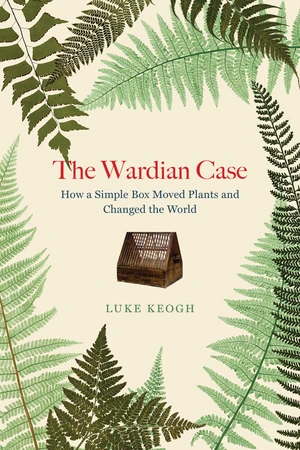The story of a nineteenth-century invention (essentially a tiny greenhouse) that allowed for the first time the movement of plants around the world, feeding new agricultural industries, the commercial nursery trade, botanic and private gardens, invasive species, imperialism, and more. Roses, jasmine, fuchsia, chrysanthemums, and rhododendrons bloom in gardens across the world, and yet many of the most common varieties have roots in Asia. How is this global flowering possible? In 1829, surgeon and amateur naturalist Nathaniel Bagshaw Ward placed soil, dried leaves, and the pupa of a sphinx moth into a sealed glass bottle, intending to observe the moth hatch. But when a fern and meadow grass sprouted from the soil, he accidentally discovered that plants enclosed in glass containers could survive for long periods without watering. After four years of experimentation in his London home, Ward created traveling glazed cases that would be able to transport plants around the world. Following a test run from London to Sydney, Ward was proven correct: the Wardian case was born, and the botanical makeup of the worldâs flora was forever changed. In our technologically advanced and globalized contemporary world, it is easy to forget that not long ago it was extremely difficult to transfer plants from place to place, as they often died from mishandling, cold weather, and ocean salt spray. In this first book on the Wardian case, Luke Keogh leads us across centuries and seas to show that Wardâs invention spurred a revolution in the movement of plantsâand that many of the repercussions of that revolution are still with us, from new industries to invasive plant species. From the early days of rubber, banana, tea, and cinchona cultivationâthe last used in the production of the malaria drug quinineâto the collecting of beautiful and exotic flora like orchids in the first great greenhouses of the United States Botanic Garden in Washington, DC, and Englandâs Royal Botanic Gardens, Kew, the Wardian case transformed the worldâs plant communities, fueled the commercial nursery trade and late nineteenth-century imperialism, and forever altered the global environment.
Price history
▲29.93%
Jan 29, 2023
€33.51
▼-23.04%
Jan 27, 2023
€25.79
▲30.56%
Jan 15, 2023
€33.51
▲571.68%
Jan 14, 2023
€25.66
▼-84.72%
Dec 31, 2022
€3.82
▼-25.38%
Dec 30, 2022
€25.00
Dec 24, 2022
€33.51

